Condensing vs Non-Condensing Tankless Water Heaters: Discover the Key Differences
When choosing a tankless water heater, homeowners usually consider two options: condensing and non-condensing. Each has its own advantages, and it's important to understand the differences before making a decision. In this article, we provide an in-depth comparison of condensing versus non-condensing tankless water heaters to help you make the right choice for your home. Trust our guide to find the perfect heater to suit your needs.

How tankless water heaters work?
When it comes to water heaters, there are two types - traditional and tankless. While traditional models store gallons of water that are constantly heated, tankless designs operate differently. They heat water instantly when required, removing the need for a large tank, and in turn save space and energy. Tankless heaters are also more durable, and are less susceptible to the problems of corrosion and leakage commonly witnessed with tanked designs. Opting for a tankless water heater is the perfect way to save energy and ensure longevity.

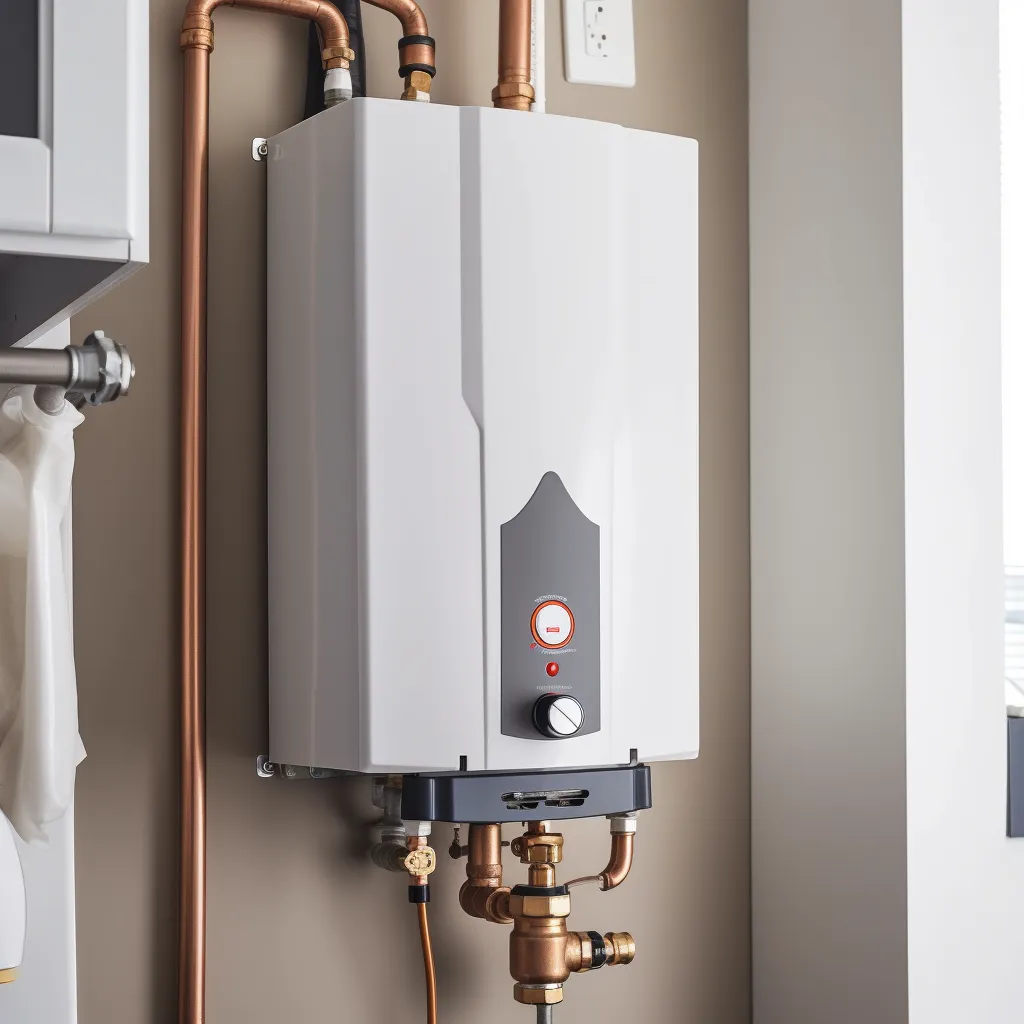
How do condensing water heaters work?
The modern condensing tankless water heater is an efficient upgrade to its conventional counterpart. By capturing waste heat and recycling it to heat incoming water, this appliance maximizes efficiency and energy conservation. This not only saves you money on your energy bill, but also reduces your carbon footprint, and thus, contributes to environmental preservation. With this eco-friendly addition, you can feel better about doing your part to sustain your planet.

What are the differences between condensing vs non condensing heaters
Condensing and non-condensing are the two types of tankless water heaters. The critical difference between them is how they handle exhaust gases. Non-condensing models release them into the atmosphere, while condensing models cool them until they condense into water vapor, which they then expel. This makes them more energy-efficient and effective than their non-condensing counterparts. Indeed, while condensing models may come at a higher upfront cost, they can considerably diminish energy expenses over time. If you're looking to lower energy costs, then condensing water heaters should be your go-to.
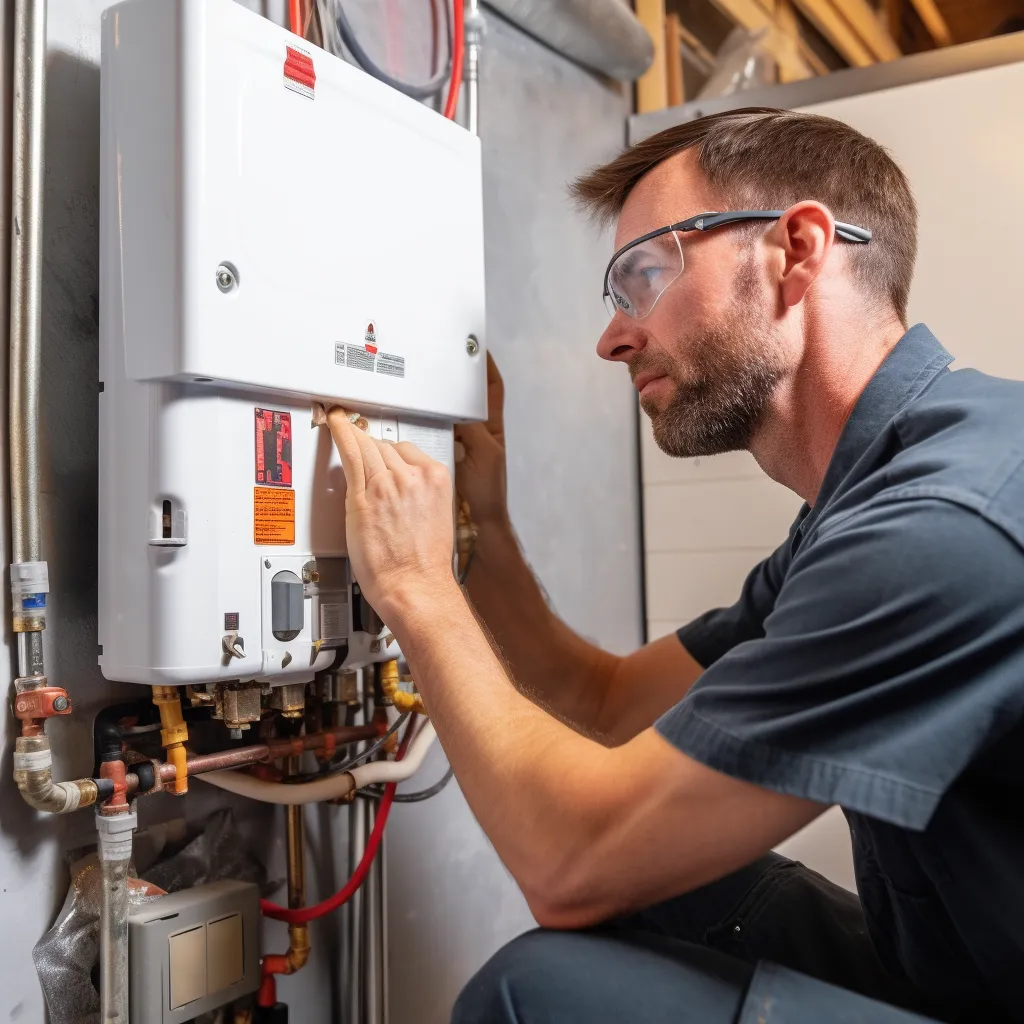
What are the benefits of tankless condensing water heaters?
Due to their efficient design, tankless condensing water heaters have many advantages compared to traditional non-condensing models, including better energy efficiency, longer lifespan, and lower operating costs. Their environmentally-friendly features, easy installation, and ability to provide continuous hot water make them a popular choice for residential and commercial use, making them a top contender for those who want to conserve energy and save money.
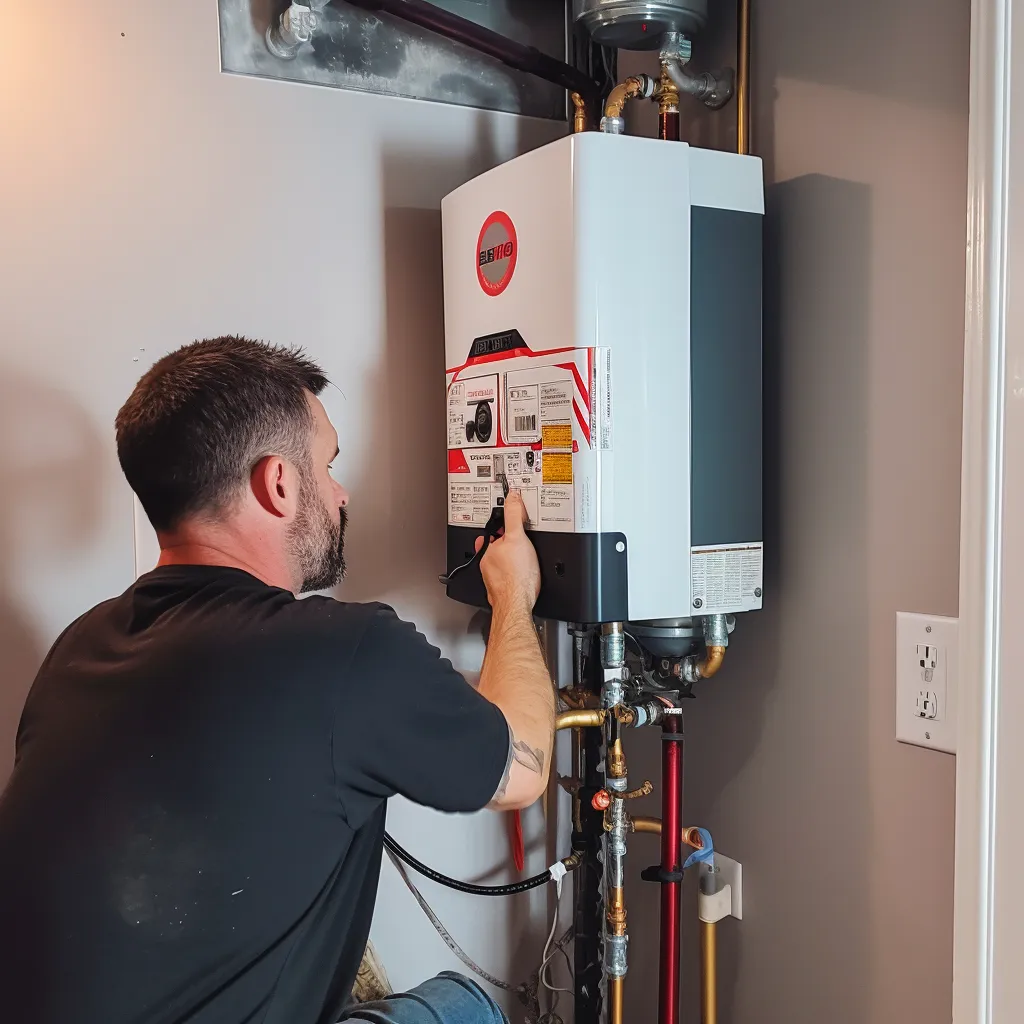
Condensing water heaters offer a slew of benefits over their non-condensing counterparts.
They are highly efficient, resulting in significant cost savings on utility bills.
Condensing models also generate fewer greenhouse gases, making them eco-friendly.
Moreover, their fewer components allow for a longer lifespan, ensuring a reliable source of hot water.
Discover more about the advantages of condensing water heaters and how they can save you money and the environment.
What are the disadvantages of a condensing tankless water heater
Condensing tankless water heaters come with a few disadvantages despite their apparent benefits, which makes it of utmost importance to contemplate before investing in one.
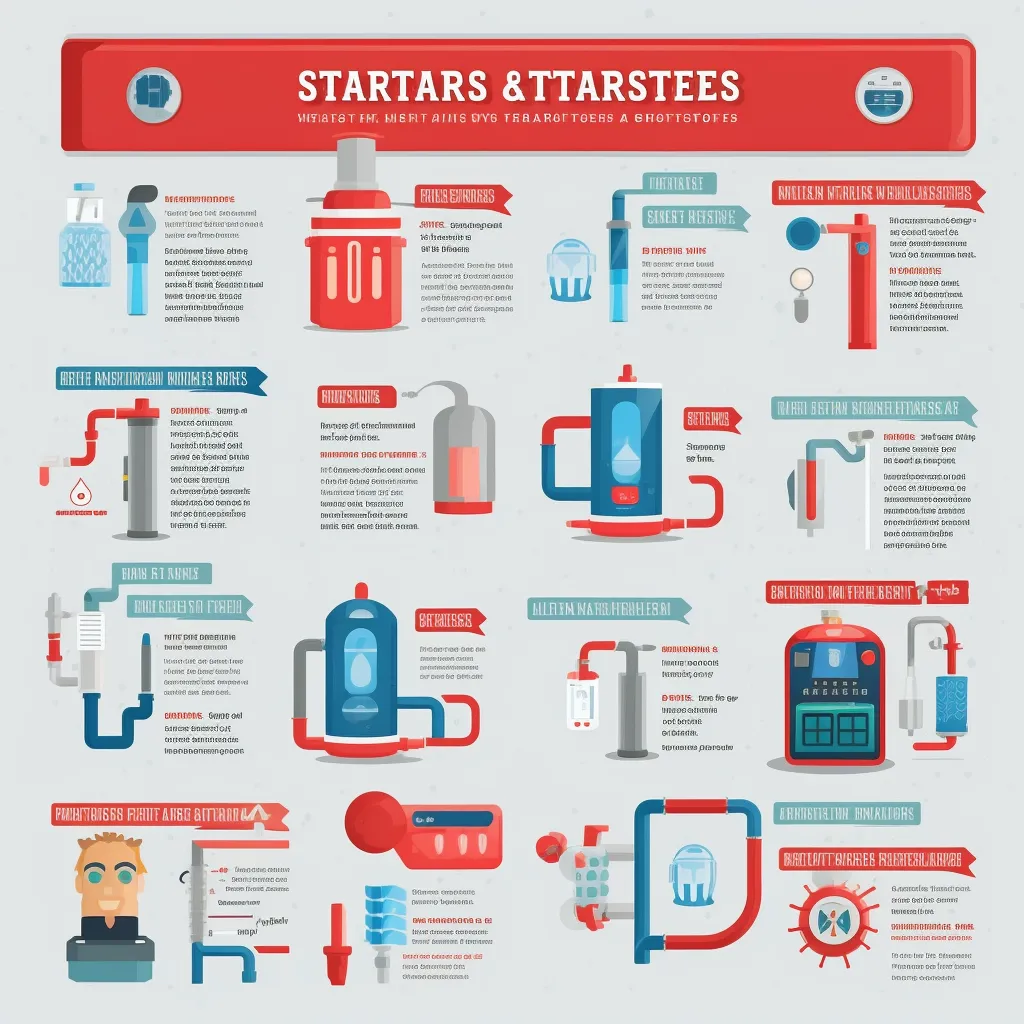
Consider the long-term cost savings before deciding between non-condensing and pricier condensing water heater models, despite the installation complexity and maintenance required in the latter.
Be sure to include service call costs in your options, as it's better to pay upfront to minimize the hassle later on.
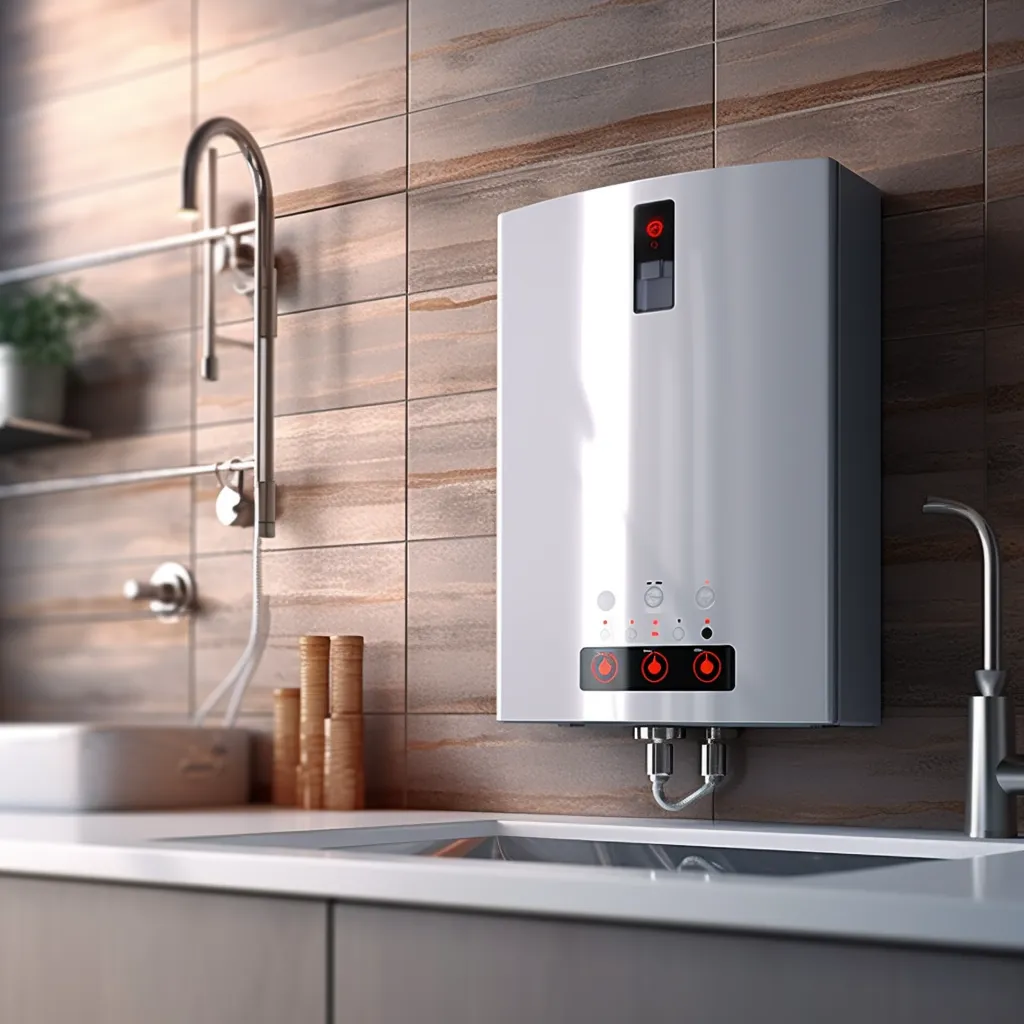
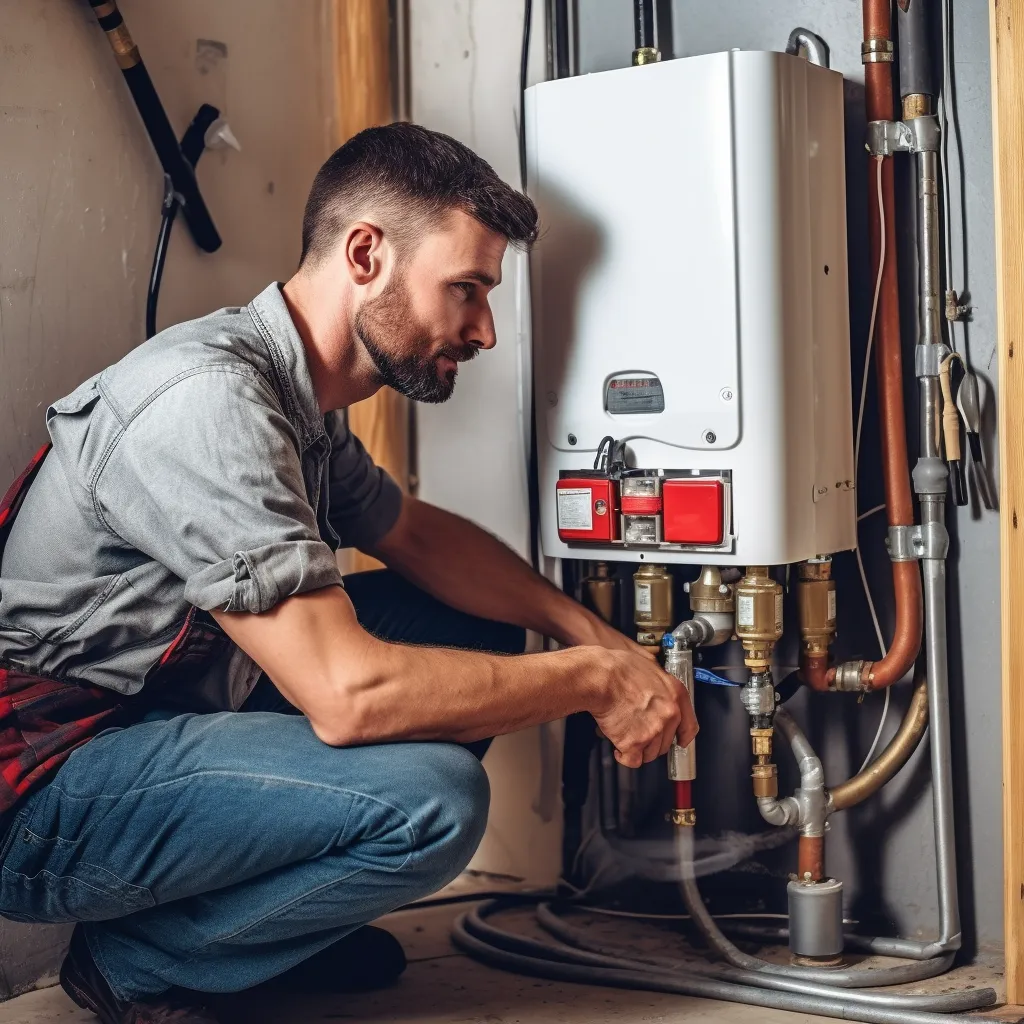
Are condensing tankless water heaters energy-efficient?
Condensing tankless water heaters are an intelligent and eco-friendly solution for warming water. With up to 96% efficiency, they capture lost heat during combustion, conserving energy and cutting costs by avoiding the need to heat excess water. Moreover, these units operate only when necessary, reducing expenses and environmental impact. Choose a condensing tankless water heater for reliable, energy-efficient, and cost-effective water heating solutions.

Are non condensing water heaters energy-efficient?
Exploring non-condensing tankless water heaters can be a smart choice for those seeking sustainable and cost-effective water heating solutions. While these systems may have lower energy efficiency compared to their condensing counterparts, the potential savings in both energy costs and usage make them a worthy consideration. Whether you're a homeowner or small business owner, upgrading to one of these systems can help you save while minimizing your carbon footprint.
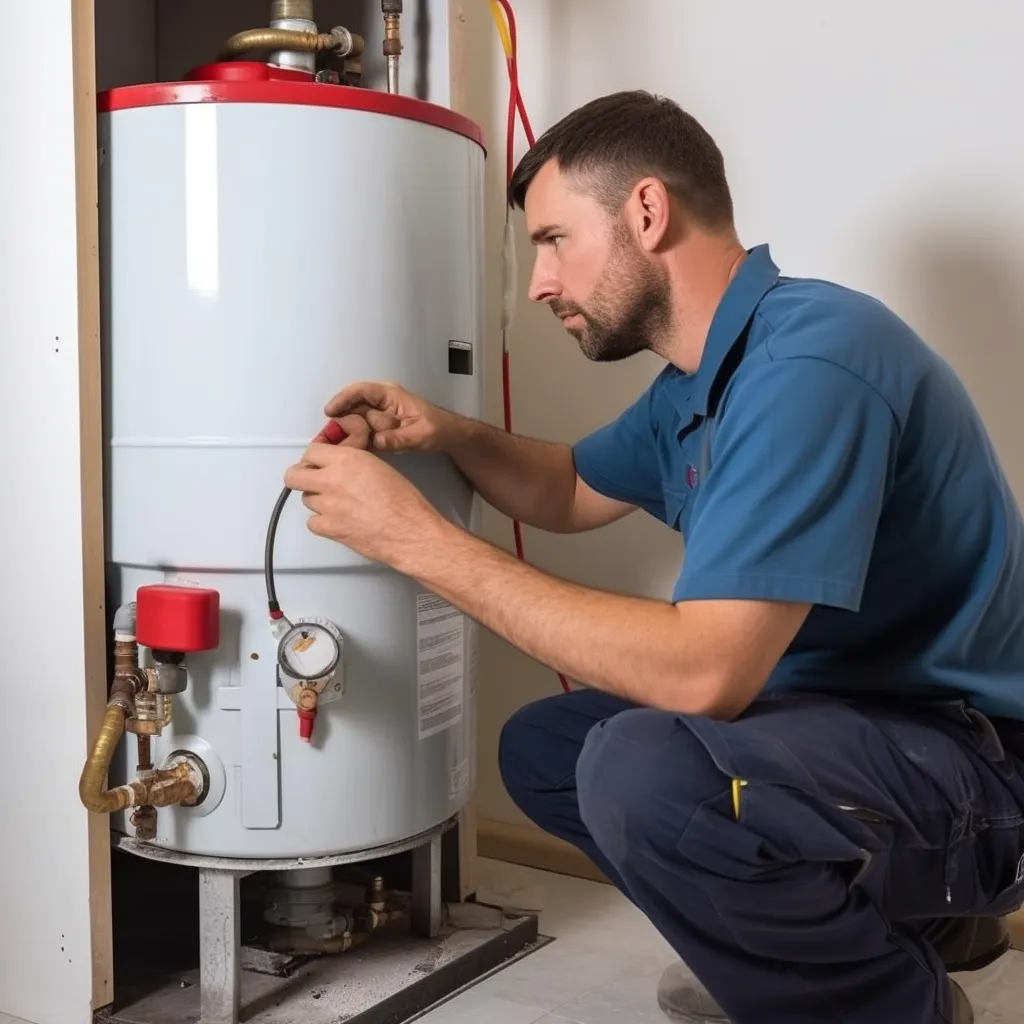
Consult water heater expert for guidance
Condensing tankless water heaters offer lasting efficiency and energy savings. Even though initial costs vary with home size, model, and brand, some may find them expensive. Installation complexity must be weighed in the decision. Consulting professionals for expert guidance can ensure an optimal choice. Rest assured, despite the investment, many homeowners report lasting benefits that make the condensing tankless water heater well worth it.
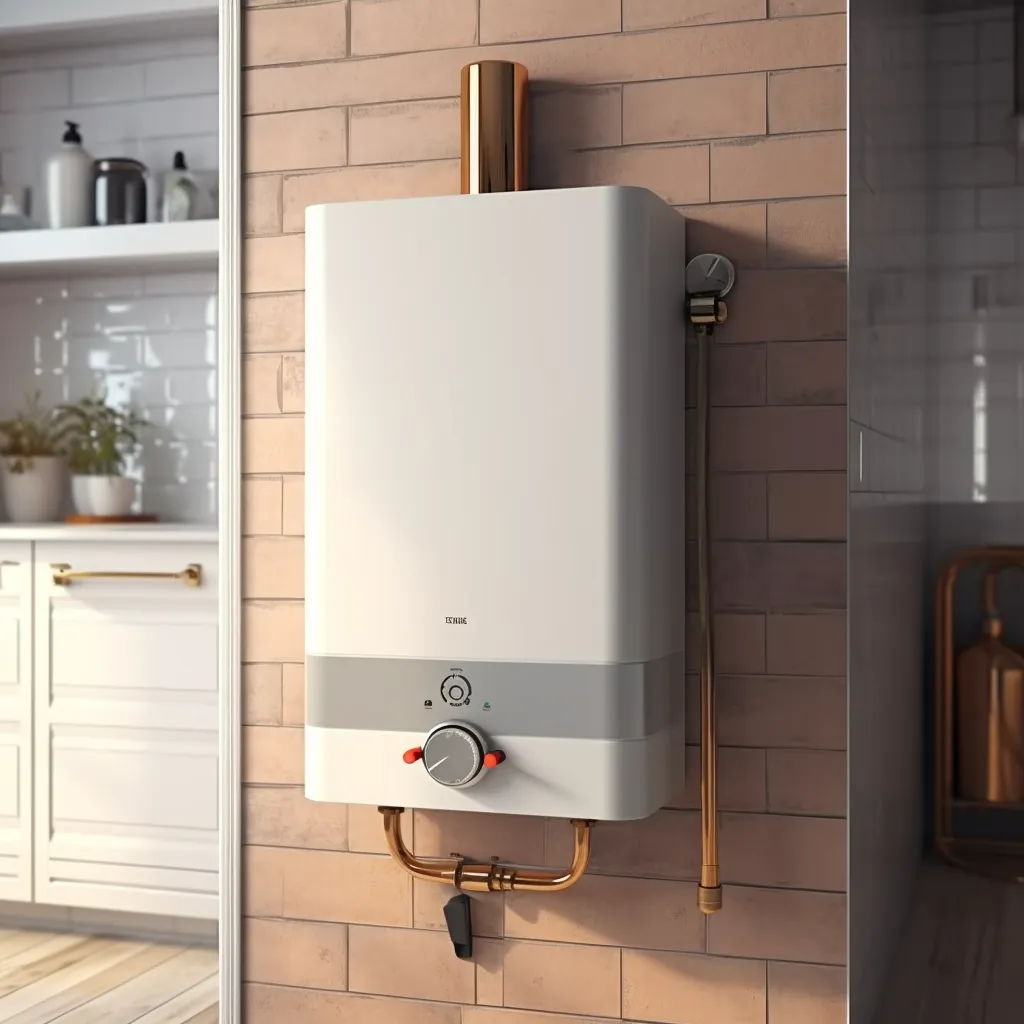
What is the cost of a non condensing tankless water heater?
Investing in the right non-condensing tankless water heater can make a significant impact on your energy bills. From trusted brands, you can expect to pay anywhere between $1,000 to $3,000. Although the initial cost can seem a bit steep, it is a high-quality product that could provide you with an endless flow of hot water, and it can last up to two decades. Its compact and sleek design allows it to fit nicely and cleanly in your home. Say goodbye to unnecessary clutter!
Maintenance tips for condensing tankless water heaters
Performing regular maintenance tasks is absolutely critical to ensure that your condensing tankless water heater operates at maximum efficiency. These advanced devices are incredibly energy efficient, but proper maintenance is key. Here are a few essential maintenance tasks to optimize the performance of your tankless water heater:
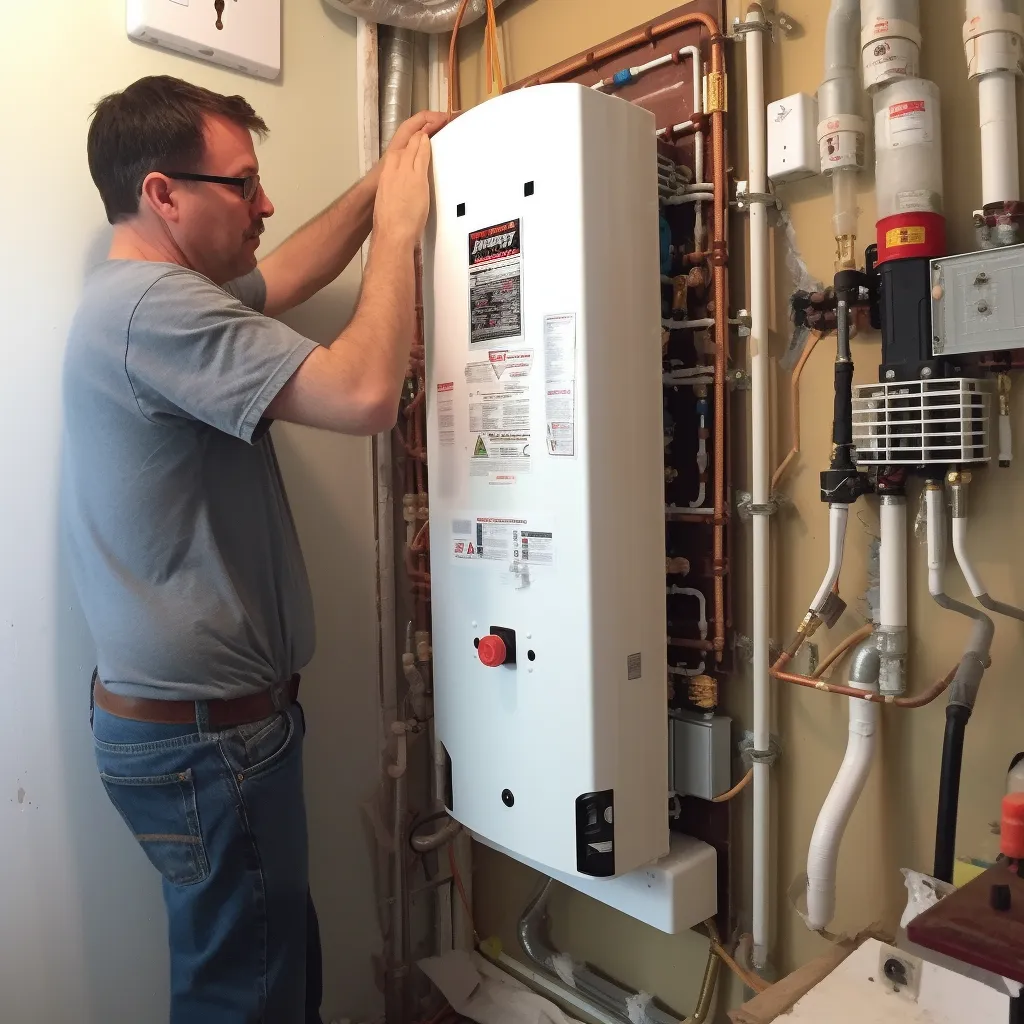
Regular maintenance of your heating system is crucial to prevent any leaks or issues.
Clean the heat exchanger and burner for maximum efficiency.
Ensure the venting system is free of debris and check filters to replace them, keeping your system running perfectly.
Routine flushing is also essential.
Test your water pressure and temperature and be sure to check the air filter for cleanliness.
Regular maintenance is essential for condensing tankless water heaters to avoid high energy bills, decreased efficiency, or damage. It's important to get professional maintenance checks done regularly to keep your water heater in top shape. Being proactive now can save you time and money in the future.
Regular maintenance is crucial to ensuring your tankless water heater runs efficiently, reducing energy bills and preventing damage. Professional maintenance checks must be conducted routinely to keep your equipment in optimal condition. By taking a proactive approach now, you could save valuable time and money in the future. Be sure to follow these tips for proper maintenance of your tankless water heater and enjoy its benefits for years to come.

Maintenance requirements for non-condensing tankless water heaters
To effectively maintain non-condensing tankless units, it is crucial to understand their unique requirements which are no different than those for condensing units. Optimization for search engines dictates that accurate product information must be articulated with precision.

It is highly recommended that you periodically purge your system of mineral buildup and debris to sustain optimal performance.
Additionally, be sure to check unit filters frequently and replace them as necessary, and clean the heat exchanger and burner while also inspecting your system for faults or leaks.
It's also important to verify water pressure and temperature to ensure the highest possible performance.
Finally, do not forget to keep the vents free from debris to avoid issues.
Factors to consider when choosing
a condensing vs non condensing water heater
When selecting a tankless water heater, you'll want to weigh different factors, depending on whether you're opting for condensing or non-condensing models - such as price, energy efficiency, and home size. Proper consideration of these factors can optimize your choice and enhance the performance of your water heater.

When selecting a water heater, various factors must be considered, such as size, installation complexity, and maintenance requirements.
If space is limited, you may consider a compact condensing unit.
While non-condensing tankless water heaters are typically bulkier, they also require more upkeep, so choose accordingly.
It's worth noting that condensing units are more energy-efficient, potentially saving you money on utilities in the long run.
Consider these factors when selecting a water heater that's ideal for your needs.
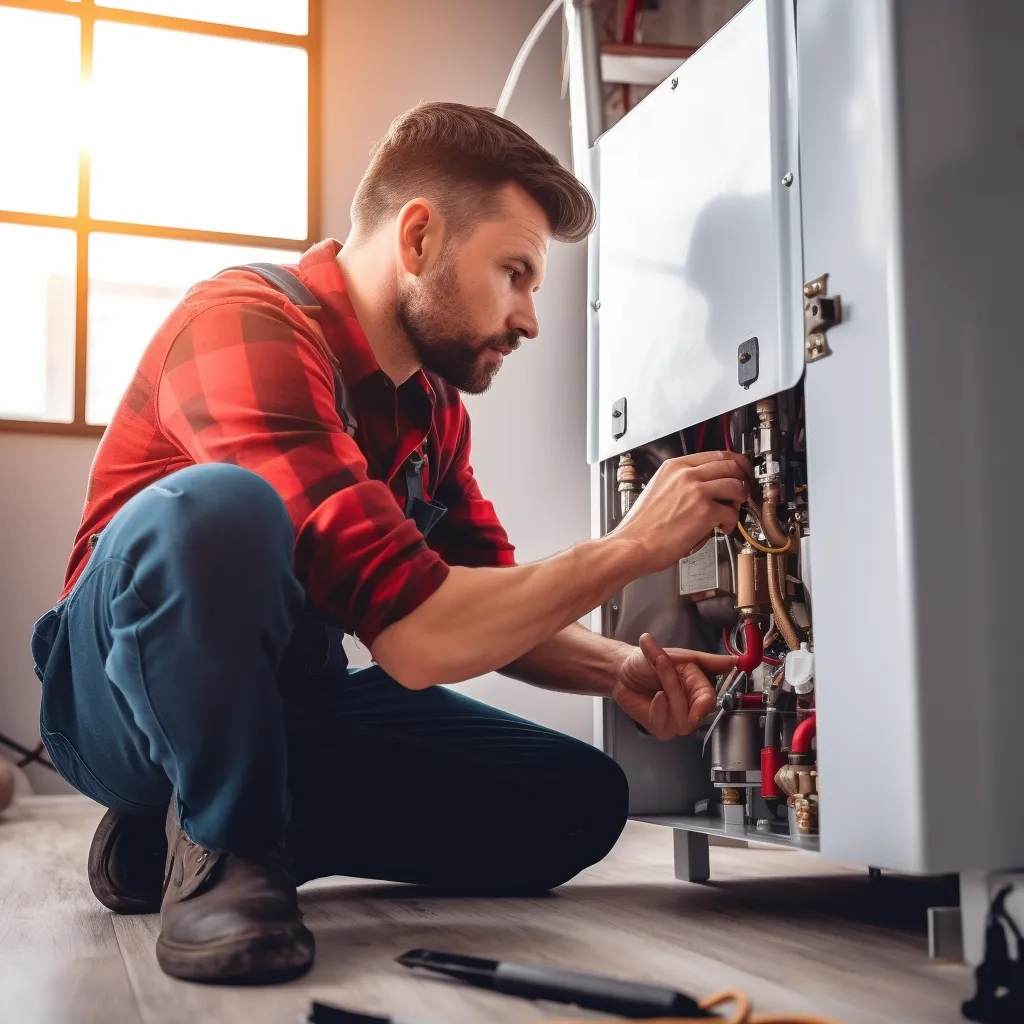
Picking the right kind of water heater for your home can be challenging
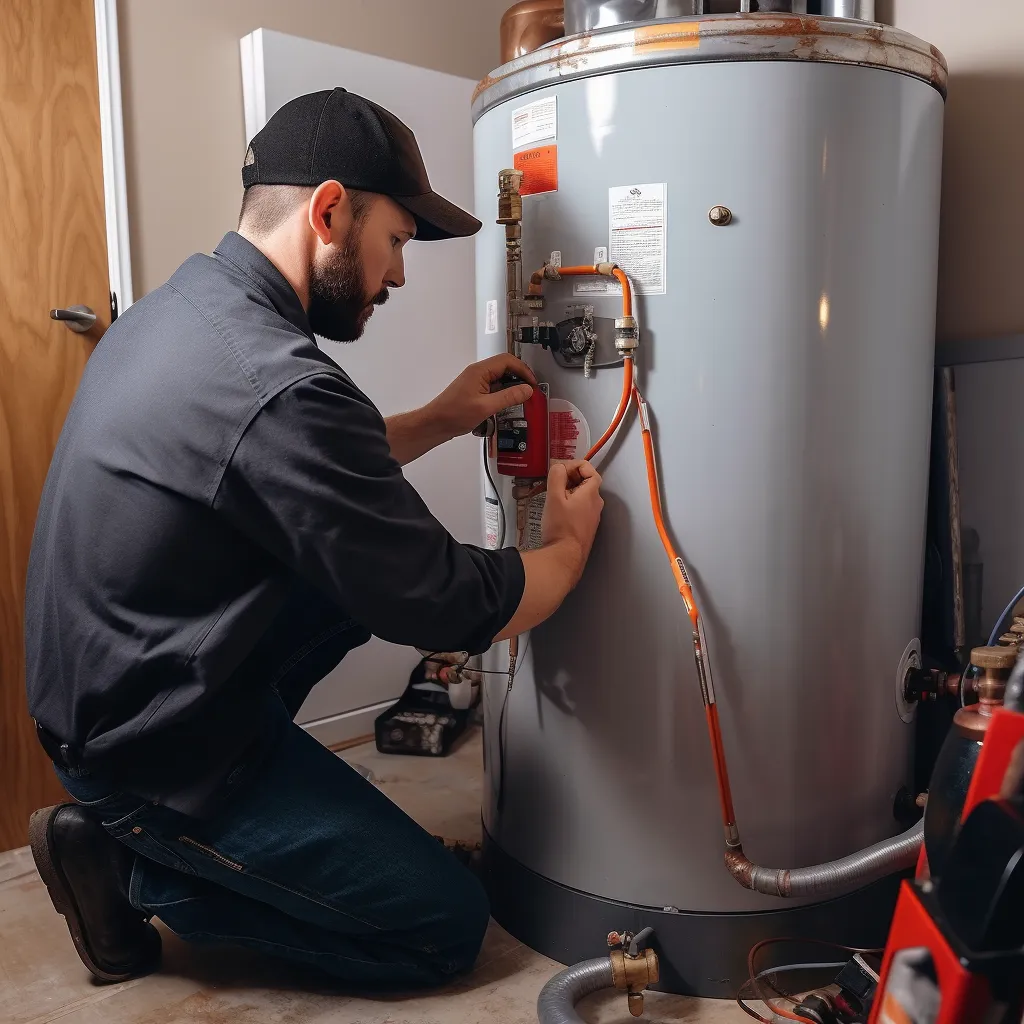
Choosing the right tankless water heater for your home can be a daunting task, but don't worry! By doing your research and considering the pros and cons of different types, you can make the best-informed decision. One important aspect to keep in mind is whether to opt for a condensing or non-condensing unit.
While a non-condensing water heater may seem tempting, as it is less expensive, it can be a waste of energy and require more maintenance in the long run. Condensing tankless water heaters, by comparison, are more cost-effective and can help you save money on energy bills. By taking the time to compare various options and selecting the best type of water heater, you can enjoy reliable hot water and energy savings.
Keep in mind that choosing the perfect tankless water heater type can be a personal decision that requires the help of an experienced professional who knows your home's specific needs. An expert can assist you in making an informed choice that is tailored to your unique requirements.
Contact Us
GET IN FULL TOUCH
PHONE:+(803) 974-4242
EMAIL:
roger@waterheaterchester.com
Chester, SC 29706
